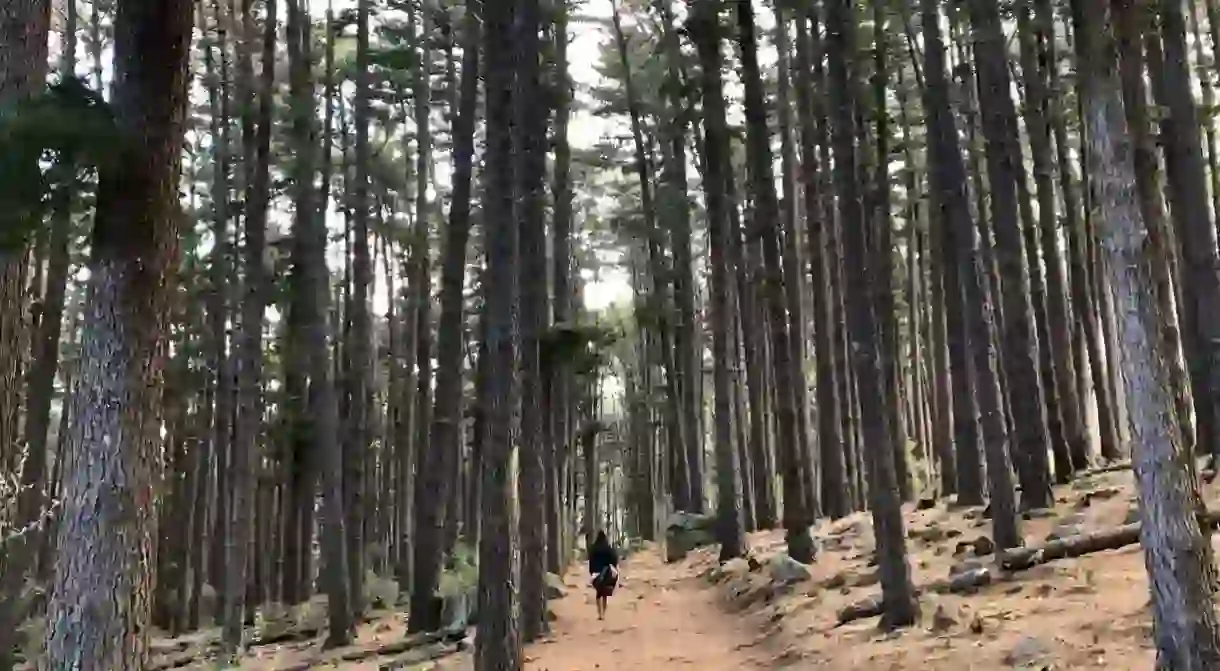Wander Through Cape Town's Most Charming Forests

At times Cape Town seems to have it all, especially when it comes to natural beauty. You’ve heard about the beaches and the mountains, as well as the wine farms, but did you know there are several incredible forests in and around the city that are perfect for a few hours of exploration?
Cape Town’s forests range from ancient, dense natural vegetation to active plantations, and each one of them is unique. However, what they all have in common is the sheer peace and tranquility they can offer you – even if you’re just a few metres away from a busy highway.
Newlands Forest
Newlands Forest sits on the slopes of Table Mountain above the suburb of the same name. Just a short drive from Cape Town’s city centre, and merely a few metres from a busy road, it only takes a few steps to get to this magical spot and feel totally removed from civilisation. It’s a forest popular with hikers and dog walkers, and there are several routes – wide jeep tracks and narrow paths – to explore. Even on hot and busy days it’s easy to escape the crowds and find a unique corner of this forest that holds both indigenous fynbos and pine and gum plantations.

Tokai Forest
The Tokai Forest is one of the most popular forests for outdoor activities in Cape Town. Although located in the southern suburbs and consisting largely of pine plantations, the forest still offers a tranquil escape from the city. You can enjoy a network of incredible mountain bike trails, a 6 km hike up to the Elephant’s Eye cave and several picnic spots. Moreover, by getting an activity permit you can also walk your dog along the forest paths.

Cecilia Forest
Cecilia Forest was once a dense indigenous forest on the slopes of Table Mountain. Although it saw a period of commercial forestation and the introduction of various exotic species, it now has protected status and is returning to its former natural glory. There are several fantastic walks through the forest and many use it as a convenient and cool starting point for hikes up to the southern reaches of Table Mountain.
Orange Kloof Forest
Of all the forests around Cape Town, the Orange Kloof is the most exclusive. This ecological sensitive zone is home to a wide range of threatened indigenous fynbos, because of which you’ll need a permit to enter. With a permit you’re free to walk the snaking paths beneath towering peaks and among beautiful milkwood trees along the trickling Disa river. There’s also a tented camp in the forest that you can rent for the night, or as part of the Hoerikwaggo trail.

Platbos Forest
If you’re looking for a unique forest outside of Cape Town, head east along the coast until you reach the town of Hermanus. Inland from there, you’ll find a forest that many believe should have died out millions of years ago. Though there’s no river to sustain the ancient milkwood trees around, they continue to thrive. There’s also a possibility of spotting a range of unique wildlife, including porcupines, snakes, caracals, frogs, and a variety of birds.

Kirstenbosch
Although Kirstenbosch is best known for its manicured lawns, sunset concerts and beautiful indigenous gardens, there’s also an impressive forest to explore on the garden’s upper reaches. Many visitors neglect these forests on the slopes of Table Mountain, which means they offer a peaceful reprieve on busy days. The forests above Kirstenbosch also serve as a good starting point for beautiful hikes up the eastern slopes of Table Mountain. Moreover, a walk up to Skeleton Gorge or Nursery Ravine from here will offer you sightings of some of the city’s most ancient trees dating back to the 17th century.














